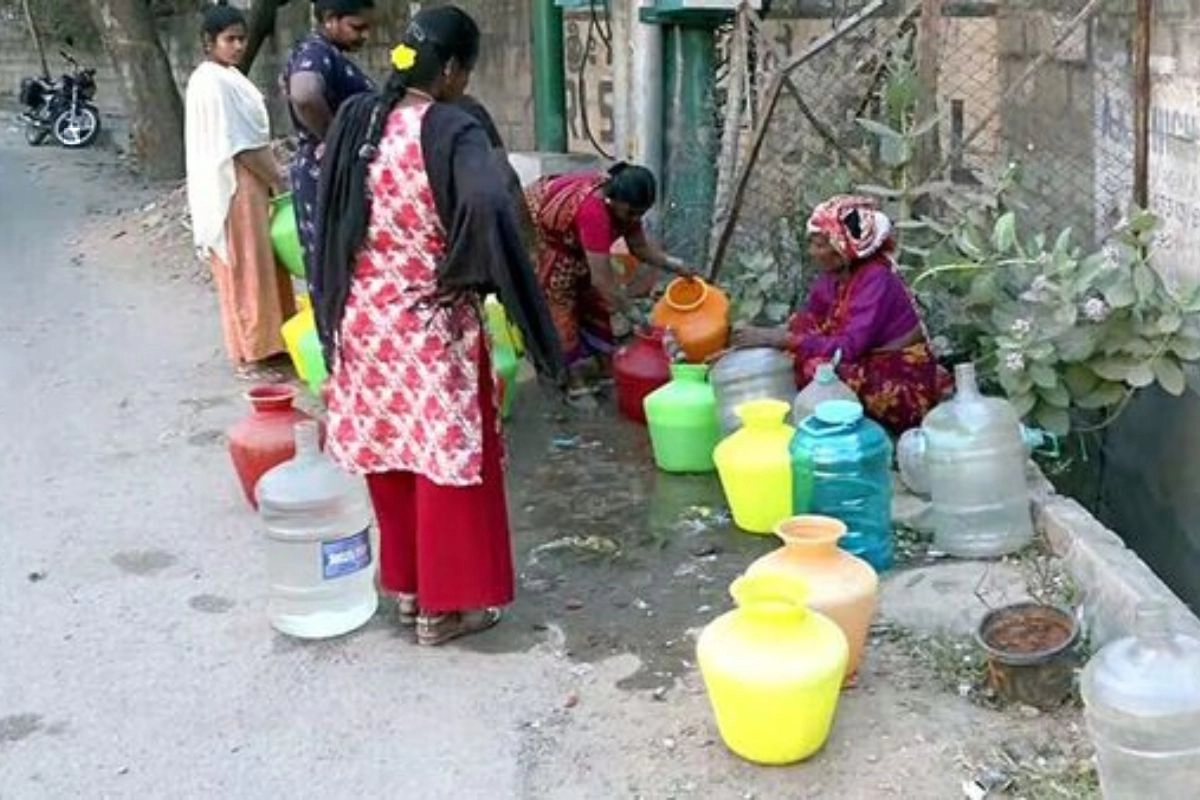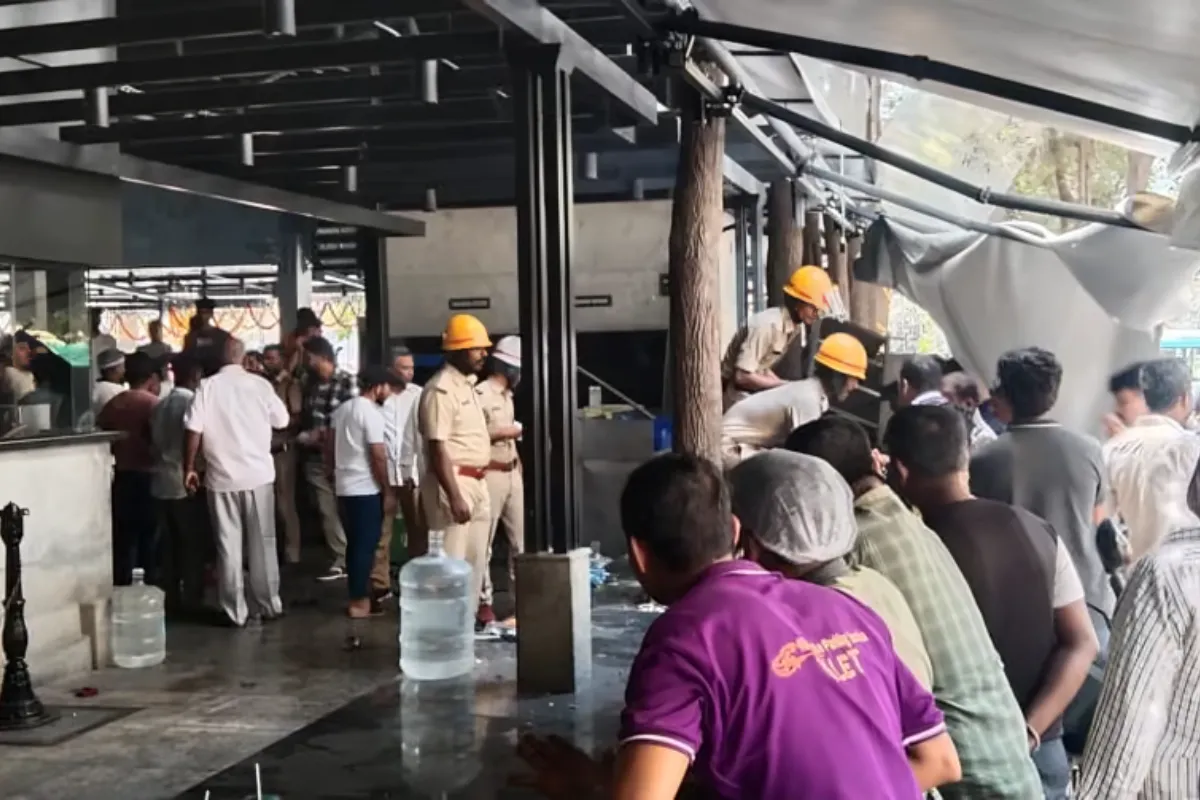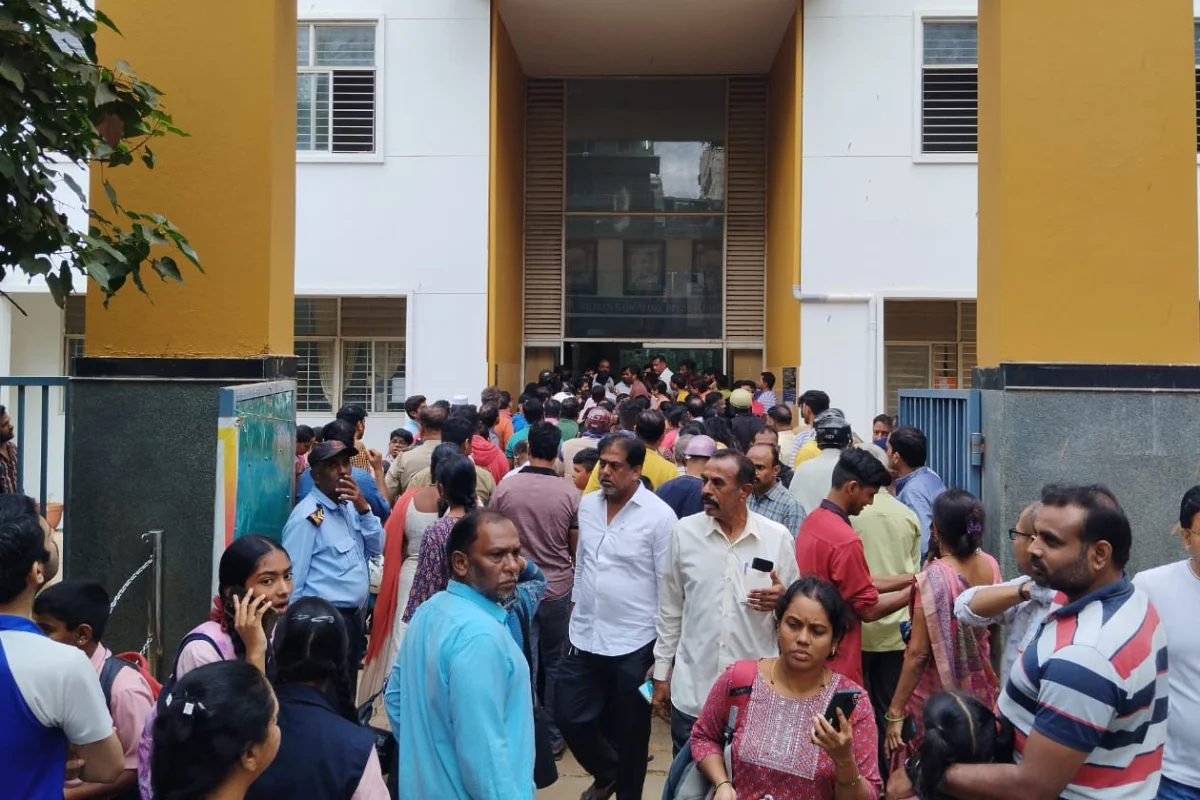Bengaluru Water Crisis: Due to the drying up of borewells in many parts of the city, Bengaluru is experiencing a severe water crisis. For everyday tasks, the locals rely on water tankers, which frequently charge outrageous fees. When India Today TV met with locals in RR Nagar, they revealed that they must wait in huge lines to acquire water.
A Cry for Help Amidst Water Crisis
“There is a water problem throughout Pattanagere in RR Nagar. There’s no one to speak to us. If we take more than one pot, they (authorities) send us back,” said Chikkalappa, a resident. “They won’t even let children be with us. They ask who the child is. If we say it’s our child, they send them back,” she added.
According to Chikkalappa, her family consists of six people. “Water isn’t enough. We have to adjust and manage,” she said. “I am 71 years old. I have to stand in a queue. I need to get water before children go to school,” she said.
Another Pattanagere local stated, “We don’t have water for bathing, to give to our cows for drinking. We have one pot of water for the five of us. It’s not enough.” “For cooking, we use corporation water. We filter the water and drink it, boil it and manage,” the person said.
RR Nagar Resident’s Struggle
Divya, a resident of RR Nagar, said, “There is water scarcity for more than three months. Every day, we call BWSSB (Bangalore Water Supply and Sewerage Board) engineer.” “I come to RO plant for drinking water every day. Only one can is allowed per person. We have to stand for hours,” she added.
Additionally, Divya emphasised that private tankers are now charging more than Rs 2,000 per can, compared to their previous prices of roughly Rs 600–1,000. According to Divya, the private tankers stopped visiting their neighbourhood after the government requested that they lower their pricing. “Every day, I am sending emails to the government but to no avail,” said Divya.
What Caused The Water Crisis?
There are several factors contributing to the water problem in Bengaluru, such as insufficient precipitation, diminishing groundwater levels, poor planning of infrastructure, and the impact of water tanker operations.
A severe drought mostly affects the IT hub, causing the Cauvery River’s water levels to drop due to low rainfall. This scarcity affects irrigation as well as drinking water. In addition, the dryness of Bengaluru’s borewells has been exacerbated by the absence of rain in recent months.
The Cauvery River is the main source of water for the Bangalore Water Supply and Sewerage Board (BWSSB), which is in charge of the city’s water supply. Boreal wells or tanker water are the only sources of water for areas lacking Cauvery water connections.
Government Intervention
The severe water issue is forcing the authorities to take extraordinary action. These actions include assuming control of all commercial and irrigation borewells and requiring each private water tanker operating in the city to be registered. Residents are also taking emergency action on their own, giving orders to cease washing cars and balconies, bathe in half a bucket of water and perform a “half flush” after daily showers, use the economy cycle on washing machines, and mop the floors and bathrooms with the waste water from Aquaguard filters.












